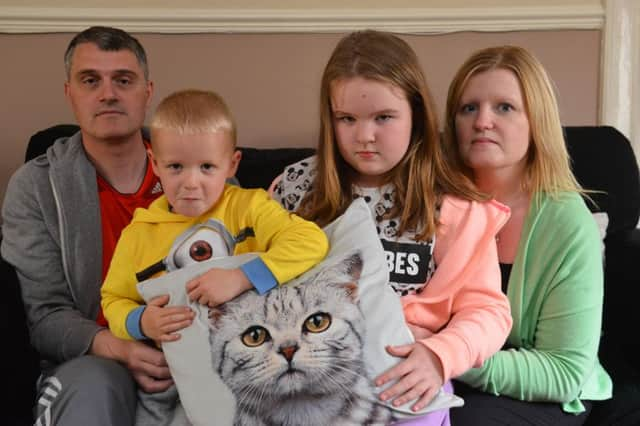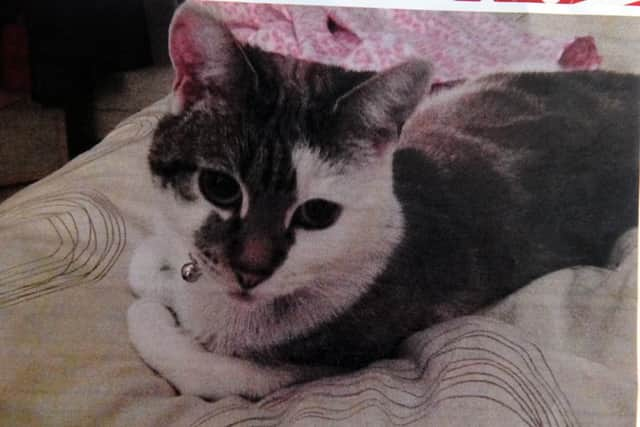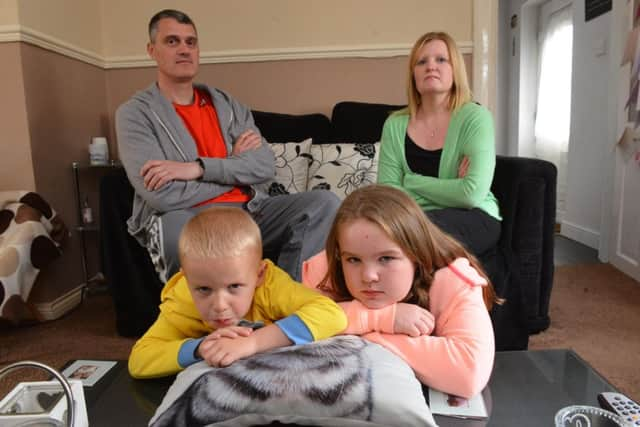Is someone poisoning cats in Hartlepool?


Amanda Brown’s cat Willow had to be put to sleep after suffering kidney failure as a result of the poisoning.
Amanda, 41, and her partner Gareth Heslington, 43, had to break the news to children Chloe Brown, 10, and Reece Heslington, three, who were left heartbroken.


Advertisement
Hide AdAdvertisement
Hide AdThe family, of Farndale Road, Hartlepool, have lost three other cats in the same way in the last three-and-a-half years and Amanda does not believe it is simply bad luck.
She said: “In my opinion, this was a callous act, which not only kills animals but leaves families with young children devastated.
“My concern is that if it has happened to us four times, how many other cats have been affected in the area?
“Seeing the cats go through what they have has been just horrendous, and we can’t have another cat for risk of it happening again.


Advertisement
Hide AdAdvertisement
Hide Ad“I’ve been advised by several people and groups that people do intentionally place antifreeze in their gardens to prevent cats going in.”
The RSPCA says it does not know if the cat deaths were accidental incidents or deliberate, but is advising people in the area to check where they keep pesticides and chemicals, including anti-freeze, and make sure it is secure and out of the way of cats.
Amanda said: “Willow was originally going to be a house cat because of what happened to the others, but we decided to let her go out because she was desperate to go outside and it was cruel to lock her in.
“One day she started vomiting. When I took her to the vets, she deteriorated, and they found that it was antifreeze poisoning.


Advertisement
Hide AdAdvertisement
Hide Ad“It damaged her liver function, and I had to make the decision to put her to sleep.
“She was the children’s cat, and they saw her grow up. They’re devastated.”
Cats are known to be attracted to anti-freeze as, to them, it has a sweet taste.
An RSPCA spokesman said: “We are concerned there are reports of cats living in the same area who are believed to have died from anti-freeze poisoning. It must be very distressing for the owners.


Advertisement
Hide AdAdvertisement
Hide Ad“We would like to ask everyone in the area to keep an eye on their cats’ well-being and if they are showing symptoms of poisoning, get them veterinary treatment immediately.
“The signs of poisoning can include one, or several of the following: Vomiting, seeming depressed or sleepy, appearing drunk and unco-ordinated, seizures, and difficulty breathing.
“If you suspect that your cat has been poisoned, you should take it to a vet immediately. If possible, you should take a sample of what the cat has eaten/drunk, or the container.”
Anyone who has information on the incident should contact the RSPCA’s Cruelty and Advice Line on 0300 123 4999.